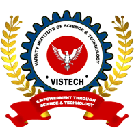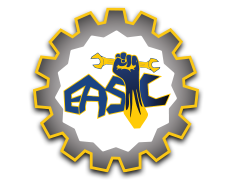Top 10 Engineering Courses in South Africa - Page 3
Discover Courses Tailored For You
Find the best courses to enhance your skills in various domains. Our diverse selection of courses will help you achieve your professional and personal goals.
Engineering students also learn
Study with Top Creative Specialists
Learn directly from top creative experts on CourseTakers. Enhance your skills with their practical insights and experience.
All Top 10 Engineering Courses in South Africa - Page 3
One major dramatic change that the world is seeing today is the fast growth and development of Engineering course in South Africa. Although there is a lot of scope left in its UG education training, still, the rate at which the demand for engineering in South Africa is growing is over the top.
Why you should learn engineering course in South Africa?
Engineering training courses in South Africa are important because of the following bullet points:
1. Multicultural Student Communities
Engineering Universities of South Africa provides an environment that is healthy, and multicultural. They also accept international students with open hands and good scholarships.
2. It can bring home a good salary
It was found out that degrees in engineering, computer science, and math fished out the highest earnings, providing up to R1.7 million for highly qualified engineers who are merely freshers, and up to 2R.7 million per year with people having 10 years’ worth of experience.
3. It provides employability in a varied range of jobs
Engineering can get you a number of job options in various fields. In any organization, engineers are recognized as a highly qualified group.
4. It provides you job satisfaction
When you are an engineer, you start addressing real problems that require immediate attention and start fixing things with your creative mind and logical thinking.
What is the cost of an engineering course in South Africa?
Before deciding your course and college of interest, it is advisable to go through and tally the cost of these courses. Hence, we have listed the first year UG tuition fees of some of the best colleges in the table below:
|
University of South Africa |
Degree Offered |
Tuition Fees (yearly) |
|
University of Johannesburg |
Engineering Degree |
R34,000 - R43,000 |
|
University of Pretoria |
B. Engineering Civil Engineering |
R38,070 |
|
University of KwaZulu-Natal |
B.Sc. Engineering Mechanic |
R40,000 |
|
University of the Witwatersrand |
BSc Engineering |
R40,170 – R48,150 |
|
North West University |
B. Engineering |
R43,900 |
|
Stellenbosch University |
B. Engineering |
R45,070 |
|
University of Cape Town |
BSc Engineering Civil |
R52,500 |
What is the average duration of engineering course in South Africa?
The course duration of B. Sc. In Engineering in South Africa is 3 years. Although after their third year, they can still continue for one more year and get an additional honors degree.
What are the most famous engineering universities in South Africa?
The biggest and the most famous engineering institutes in South Africa are:
1. University of Pretoria
2. University of Cape Town
3. University of KwaZulu Natal
4. University of Witwatersrand
5. University of Stellenbosch
6. UNISA (University of South Africa)
7. University of Johannesburg
8. North West University
9. Cape Peninsula University of Technology
10. Nelson Mandela Metropolitan University
11. Tshwane University of Technology
12. Vaal University of Technology
13. Durban University of Technology
What will I learn by taking engineering course in South Africa?
Most common and famous courses that are offered in engineering in South African institutions are:
- Petroleum Engineering
- Nuclear Engineering
- Actuarial Mathematics
- Chemical Engineering
- Electronic and Communications Engineering
- Computer Science and Engineering
- Electrical and Computer Engineering
- Systems Engineering
- Aeronautical Engineering
- Mining Engineering
Moreover, getting into an engineering course can help you sharpen a number of skills such as analytical thinking, logical thinking, problem-solving and data analysis, etc.
What jobs I can get after taking engineering course in South Africa?
Taking up the course of engineering in South Africa makes sure that you are provided with an endless number of options and opportunities. We will go through some of the engineering jobs and other general jobs that help you know about the kind of job you might be interested in after taking engineering training in South Africa.
1. Engineering Specific Jobs:
|
Qualification (Engineering specific) |
Median Salary |
|
Professional Engineer License (P.Eng.) |
R722 046 |
|
Project Management Professional (PMP) |
R660 000 |
|
Project Management Certificate |
R600 000 |
|
Certified Professional Engineer (PE) |
R588 114 |
|
Industrial Engineering Professional Skills Certification Certification |
R551 695 |
|
Higher National Diploma (HND), Civil Engineering |
R540 000 |
|
Mechanical Engineering Certification |
R415 884 |
|
Certified Chemical Engineer |
R360 000 |
|
Higher National Diploma (HND), Mechanical Engineering |
R312 623 |
|
Engineer in Training (EIT) |
R301 099 |
2. General Jobs:
|
Qualification (General) |
Median Salary |
|
Professional Engineer License (P.Eng.) |
R602 157 |
|
Certified Professional Engineer (PE) |
R539 672 |
|
Chartered Accountant (CA) |
R544 385 |
|
Project Management Certificate |
R399 329 |
|
Business Analysis Certification |
R377 117 |
|
Engineer in Training (EIT) |
R305 576 |
|
B.Com |
R244 860 |
|
Business Certificate |
R240 876 |
|
Higher National Diploma (HND) |
R214 374 |
|
Secondary Teacher Certification (Grade 9-12) |
R178 574 |
Hence as it is clear, engineers are one of the highest-paid members of the South African community. The country is in desperate need of engineers to uplift themselves. Hence, taking up the engineering course in South Africa can end up being quite too beneficiary.

























